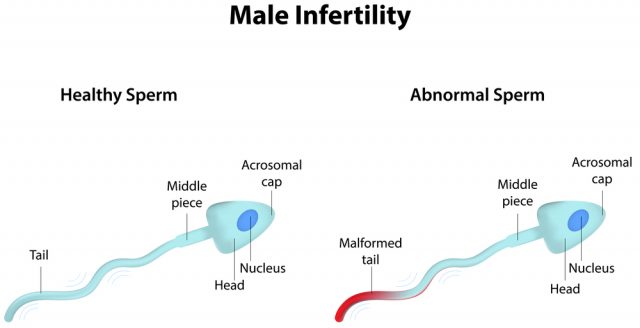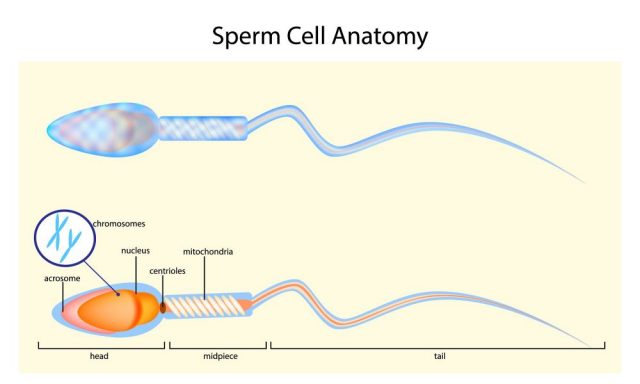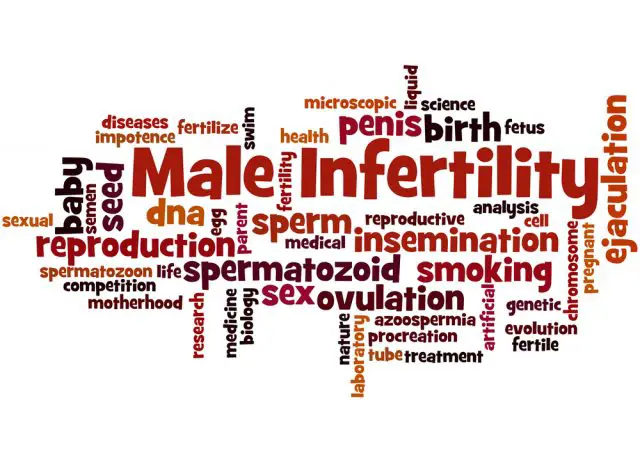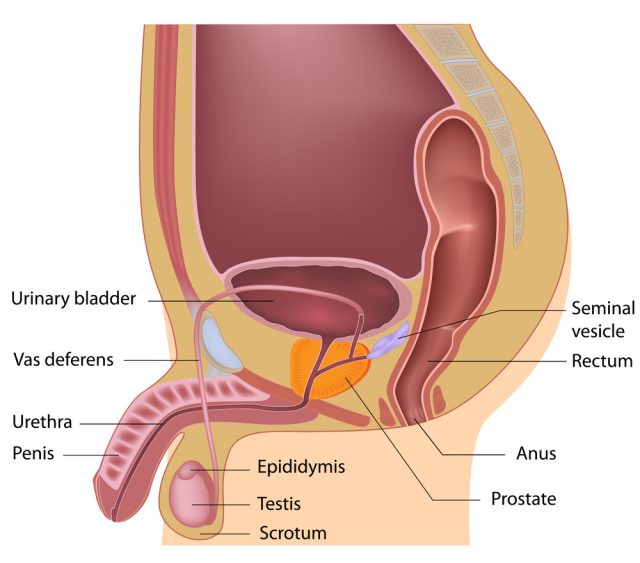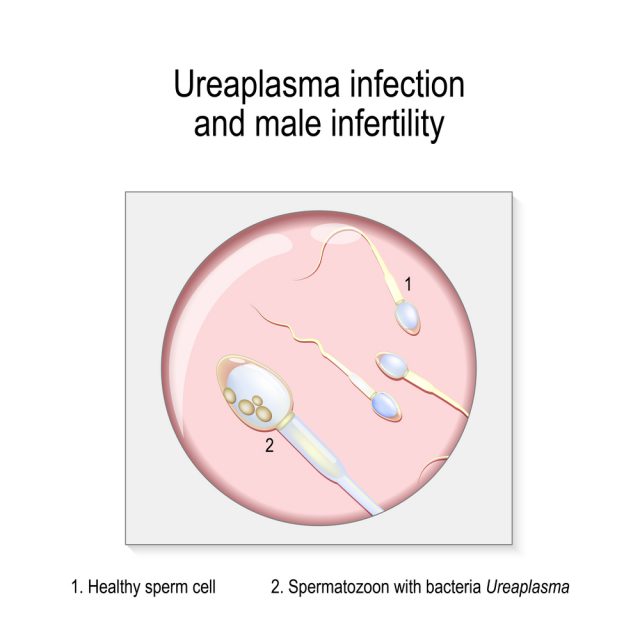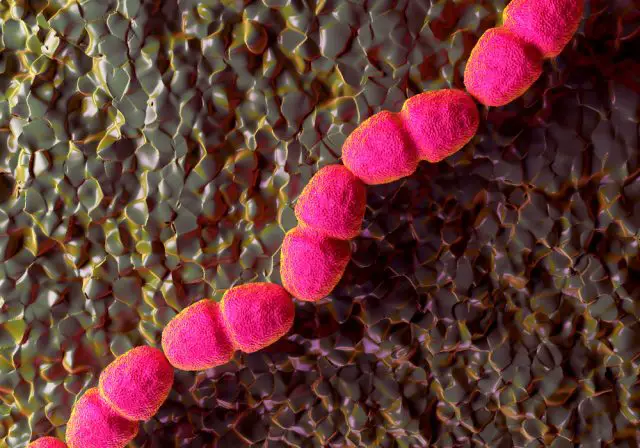Bacterial Infections And Male Infertility
Introduction
Infertility affects 7% of men. In some cases, infertility is temporary and can be fixed with proper treatment. In other cases, the cause has been left too long or is completely unknown. These cases cannot be reversed and must seek alternative methods for conception. Luckily, modern medicine has come a long way, so it is possible that an infertile male can still have a child with a fertile female.
Male bacterial infections are one of the unfortunate causes of infertility. This article looks at both male infertility as well as the relationship between infertility and infections.
Male Infertility Causes
There are dozens of causes of male infertility and testing is discovering more. Many of these causes don’t have treatment options, so it becomes an issue to prevent these causes from ever happening. Unfortunately, some of them can’t be prevented, like genetic predisposition and testicular deficiencies.
Below, you can see the different types of male infertility and the causes of each. These issues range from a simple infection to severe health risks like cancer.
- Immune Infertility is a type of infertility is caused by antisperm antibodies that impair fertilization and even cause damage to the embyro. Risk factors for this type of infertility are:
- A breakdown of the blood-testis barrier
- Orchitis
- Varicocele
- Prostatitis
- Lack of immunosuppression
- Testicular cancer
- Trauma
- Surgery
- Urinary tract infection
- Infections
- Testicular Deficiencies refer to testes that produce less sperm than average or have a poor quality of sperm. There can be several causes of this, including:
- Infections
- Varicocele
- Neoplasm
- Malaria
- Testicular cancer
- Age
- Genetic defects
- Abnormal set of chromosomes (klineselter syndrome)
- Pre-testicular issues are issues that refer to conditions caused by inadequate hormonal support outside of the testicles. This can include:
- Obesity, leading to hypogonadotropic hypogonadism
- Coeliac disease, if left untreated
- Drugs or alcohol
- Strain to the testicles from riding (horses, motorcycles, bicycles, etc)
- Some medications (including chemotherapy and steroids)
- Genetic abnormalities
- Testicles that haven’t dropped
- Damage to the testicles
- Mumps
- Post-testicular factors are caused most commonly by obstructions within the testes or surrounding area. This includes:
- Obstruction of the vas deferens
- Obstruction of the ejaculatory duct
- Cystic fobrosis
- Prostatitis
- Hypospadias
- Impotence
- Smoking has been proven to reduce sperm count. The effect smoking has on male infertility isn’t clear beyond that.
- Sexually transmitted infections often contribute to infertility, especially:
- Nongonococcal urethritis (also known as chlamydia)
- Gonorrhea
- Syphillis
- Mycoplasma
- Ureaplasma
- Unknown causes for male infertility account for 50% of all infertility cases.
Male Infertility Symptoms
The main symptom for male infertility is the inability to get a spouse pregnant. That is the kind of symptom you only notice when it becomes a problem. However, there are other symptoms that can suggest something might be wrong before you start trying for the baby. A few of the symptoms listed below are the result of an STD:
- Pain in the testicles
- Pain when urinating
- Burning when urinating
- Discharge in urine
- Swelling or lumps found in the testicles
- Open sores found around the genitals
- Premature ejaculation
- Small amounts of semen from ejaculation
- Inability to maintain an erection
- Inability to get an erection
- Decreased sexual desire
- Decreased facial hair
- Decreased body hair
- Breast growth (not due to weight gain)
- Emotional dis-regulation
Some of the less obvious symptoms are problems with the respiratory function. This includes common and persistent respiratory infections and the inability to smell properly. This is most commonly associated with the lung-infection known as tuberculosis. Although cases are rare, it is still something that must be considered if the symptoms are present.
If you are experiencing any of the symptoms above, go to the doctor. You need to get a proper diagnosis. Ignoring the problem will only make it worse.
Male Infertility Diagnosis & Treatment Options
Diagnosing male infertility will require a complete medical examination. The first step will be to provide information about your environment and your personal behaviors. Unfortunately, this will require you to answer many personal questions. Your doctor may ask any of the following:
- Do you have any previous issues?
- Have you ever experienced impotence?
- Have you have any trauma to the testicles?
- Have you ever had an infection in the genitals?
- Are you often exposed to excessive heat near the genitals?
- Do you currently take any type of medication?
- Do you, or have you ever, taken something with steroids?
- Do you consume alcohol or drugs? How often?
- How often do you have sex? Who do you have sex with?
- Do you use lubricants or condoms? What type?
These questions are deeply personal, but they are required to get an understanding of which risk category you fit into, if any. This helps to determine if there are any environmental risks. These questions are just the beginning of the process, which will likely involve a detailed recollection of personal and family health issues. This helps to determine genetic factors or a predisposition.
The next step is the physical examination. This involves a thorough examination of the genitals, followed by a semen analysis. In order to properly diagnose male infertility, separate semen samples may need to be taken.
Additionally, your doctor should request a blood sample. This will help them to determine if there is any dis-regulation within your hormone levels. If something is causing a dis-regulation of your hormones, it can be more than serious. You’ll likely notice if there have been any changes, such as less hair growth, a higher voice, off-balanced emotions, etc. These are often caused by a hormonal difference. The good thing about that is there are treatment options.
You may also be required to get an ultrasonograph if the doctor has any suspicions of disease. Unfortunately, many diseases lack treatment options.
The treatment of infertility largely depend s on the cause. You will need to talk to your doctor about a treatment plan that is based on your personal needs. If there are issues with the testicles, but the sperm quality is fine, your doctor may suggest alternatives for having a baby. This may include in vitro fertilization or intrauterine insemination. Other treatment options include:
- Medication for STI’s
- Hormone therapy
- Anti-inflammatory medications
- Antibiotics
- Surgery
Largely, surgery will only be used if there is a blockage. There is no other reason to have surgery. Also, it is important to note that after surgery, some patients are still infertile. Only choose this treatment option if your doctor is sure that a blockage is what is causing your infertility.
Prevention of Male Infertility
Since treatment options are few and far between, it is important to practice the proper prevention methods. Of course, there’s nothing you can do about genetic issues and little you can do about biological ones.
At the same time, there are several lifestyle choices that can and will reduce your risk of infertility:
- Avoid smoking, drugs, or excessive alcohol
- Avoid excessive heat around the genitals
- Avoid radiation exposure
- Exercise your sperm (more than once a week, but not every day)
- Avoid individuals with a history of STD’s
- Practice good personal hygiene
- Wear a protective cup in situations with a high-risk of testicular damage (like sports)
- Wear loose-fitting clothing so the testicles can breathe
- Maintain a healthy diet (such as the Mediterranean diet)
- Seek treatment right away if you notice any abnormalities
Bacterial Infections Can Cause Male Infertility
Bacterial infections can cause swelling and compromise the function of any area. This includes genitalia. Although male bacterial infections are less common than those in females, they are still possible. In fact, bacterial infections of the genitourinary tract account for 15% of male infertility cases. The inflammation of the bacteria can prevent sperm cell function and compromise sperm quality. This bacteria is often the result of a urinary tract infection or a sexually transmitted infection (Chlamydia, Gonorrhea, Syphilis, Mycoplasma, Ureaplasma).
Other Types of Male Bacterial Infections
One of the most common bacterial infections is e. faecalis, a bacteria with 18 different strains that is resistant to treatment and can survive in almost any environment. As such, it’s incredibly difficult to treat as it rejects many available treatments.
This is a common issue when it comes to male infertility. The treatment options are so minimal, it can be entirely discouraging. Because of this, support becomes one of the most important parts of recovery. You are going to want the support of your spouse and the support of your family.
Notes Regarding Male Bacterial Infections
If you have identified having an infection, you need to read the following statements:
- Bacterial infections are transmittable, so practice safe sex.
- Bacterial infections will likely spread if they are left untreated.
- A lower immune system will make you more susceptible to a bacterial infection.
- Poor personal hygiene is a great risk factor.
- Symptoms of a bacterial infection are almost always mild, at first.
- Abdominal pain or pressure without cause is a sign of infection.
- STI’s can be cured if they are caught and treated right away.
- A vitamin-rich diet is a good way to prevent possible bacterial infections.
- Healthy men are generally able to fight off bacterial infections without any help.
Male Infertility Support
If you have been diagnosed with male infertility, you are likely feeling confused or overwhelmed. It’s not easy news to hear. Depending on your future plans, it can feel entirely crushing. You and your significant other might be struck by sadness.
Right now, it is important that you take a break from thinking about wanting a family. The best thing you can do is seek support, either from the people in your life or new individuals. There are many others out there that feel the exact same way as you. You may be the type to handle your own issues in private or you may be the type to share with others. Regardless of your emotional expressiveness, you should get in touch with a support group. There are many online forums you can go to if you’re worried about your identity or facing the issues. It’s important to know you’re not alone.
You may also want to research everything you can about male infertility. Hopefully this article helped you to understand the causes and prevention methods, but there is more information out there.
Once you are well-informed and have had enough time to come to terms, you can look at alternative methods for having a baby together.

